This week Csíkszentmihály Mihály celebrated his 76th birthday. Since I came across him I’ve been attracted to his concept of flow and his interest in the here and now and what makes people feel really involved in what they are doing. There are some aspects of his life which may not be widely known but which are worth exploring for a better understanding of the man and his ideas.
Coincidentally, for a person who is most famous for what he calls flow, he was born in
Fiume, Italian for river, now Rijeka which also means river. It belonged to Italy when he was born, used to be Austria-Hungary before that, became Yugoslavia and is now Croatian. For a short period after
World War 1 it was even a free, independent city. The river that flows into Rijeka is the Riječina.
I’m sure that the fact that he grew up in Fiume and Rome, was held for a time in an Italian prison camp and, unlike many relatives and friends in Budapest who had been killed, survived, had a big impact on his thinking and how he chose to spend his life. One of his brothers died in the war and another had been taken prisoner by the Russians and sent to a forced labour camp in Siberia.
“As a child in the war I’d seen something drastically wrong with how adults—the grown-ups I trusted—organized their thinking. I was trying to find a better system to order my life”.
Language teaching
A major challenge for language teachers is how to involve students and while Csíkszentmihály is not involved in language teaching he does have something to offer language teachers and language learners. Earlier this year on Scott Thornbury’s blog there was a lively discussion on flow and I added this comment.
“I went to see Csíkszentmihályi Mihály here in Budapest in November last year.
Really enjoyed watching him talk through his ideas in a very modest non-showman type way. He is one of the first psychologists to research and concentrate on what makes us feel good, rather than concentrating on pathology and it’s good to listen to him. Here he is giving one of the TED talks.
http://www.ted.com/talks/mihaly_csikszentmihalyi_on_flow.html
I started writing a blog in January which was very much inspired by going to see him speak and is based on trying to explore that elusive thing called quality. I re-read “Zen and the Art of Motorcycle Maintenance” for some added inspiration and it put me on the track of what it means to be involved and give undivided attention to the here and now in the classroom as a teacher.
For teacher development this is one of the most important things to try to develop and it is to do with caring about what you do and primarily really caring about the the people in the classroom who you teach. This involves listening to students attentively with good eye contact, answering their emails quickly and giving them good feedback on their contributions to the class and the course.
If our students notice and can feel that we are totally immersed in the act of being a teacher and not thinking about and worrying about other things then they are more likely to respond in a positive way to the classroom experience.
And whenever Csíkszentmihályi Mihály is mentioned it always reminds me of a quote of John Dewey’s observation.
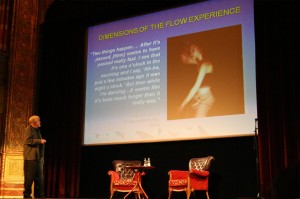
Dancing the night away and before you know it it's morning, one of Csíkszentmíhály's slides in Budapest
“The ideal of using the present simply to get ready for the future contradicts itself. It omits, and even shuts out, the very conditions by which a person can be prepared for the future. We always live at the time we live and not at some other time, and only by extracting at each present time the full meaning of each present experience are we prepared for doing the same thing in the future. This is the only preparation which in the long run amounts to anything” ( John Dewey. 1963 Experience and Education MacMillan London, quoted in Legutke, M & Thomas, H. Process and Experience in the Language Classroom Longman New York 1991)
Teacher Training
I include the work of Csíkszentmihályi Mihály in preparing my teacher trainees to teach and believe he should be one of the people students should read when they train to be teachers and that teachers should read when they go on inservice teacher training courses. As a teacher trainer, I find myself mentioning him more and more and I don’t think it is a co-incidence as his work is very relevant to trying to pin down what good teaching is all about.
Csíkszentmihályi Mihály lists a number of factors which accompany the flow experience, one of which is direct and immediate feedback. If we translate this to the English classroom, then the “successes and failures” we experience in a lesson are consciously felt by the feedback we get on our students faces and by what they say and do, and our subsequent choices and decisions about how to proceed in the lesson are informed by this knowledge and awareness.
This mirrors the thoughts of Donald Schön, who has had enormous influence in teacher training with his work on The reflective practioner. (Schön, D. (1987) Educating the Reflective Practitioner, San Francisco)
Schön was a pianist and clarinettist in both jazz and chamber groups and very interested in the concept of improvisation, in the classroom this is exercised as the ability to ‘think on one’s feet’. Schön also studied John Dewey for his PhD. All these things are linked in such interesting ways.
In preparing teachers for the classroom, giving them the confidence to make intuitive decisions based on reflection in action will be helped by applying both Csíkszentmihályi’s and Schön’s work to classroom observations and getting teacher trainees to appreciate the wisdom of their work”.
Csíkszentmihályi and the Internet
In an interview with “Wired”, Csíkszentmihályi was asked about what makes a good website and he argued that great websites were not about navigating content but staging experience and that there should be “a finely tuned sense of rhythm, involvement and anticipation” which he also describes as flow.
“A website that promotes flow is like a gourmet meal. You start off with appetizers, move on to the salads and entrees, and build towards dessert. Unfortunately, most sites are built like a cafeteria. You pick whatever you want. That sounds good at first, but soon it doesn’t matter what you choose to do….Website designers assume that the visitor already knows what to choose. That’s not true. People enter websites hoping to be led somewhere, hoping for a payoff.”
He also says that “online communities are easy to create, but they are also easy to ignore and drop out of and that the internet allows the easy exchange of information and the communication of values. But I’m still fighting the notion that the internet is really going to result in a more complex vision of reality. When things become too easy, they also end up becoming more sloppy. In the Middle Ages, for example, people were willing to walk from Stockholm to Munich to meet somebody who had something important to say. They listened and thought seriously about what they heard. Now, communication is instantaneous. I’m afraid after a while we may not pay much attention to it.”
Rivers and flow
This blog is called “Classrooms on the Danube” and I look out at the Danube from my flat. I’ve been to the delta in Romania in Sulina and plan soon to go to the source in Donaueschingen. Over the summer Luke Meddings wrote a blog post “Flow river flow” in which he mentioned this blog and included a link to Sandy Denny singing “Ballad of the Easy Rider”. ‘The river flows, it flows to the sea, wherever that river goes, that’s where I want to be.’ Happy Birthday Mihály, it was great to see you in Budapest last year and thanks for being one of the psychologists in the world who tries to understand what makes us feel good about life.

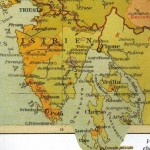
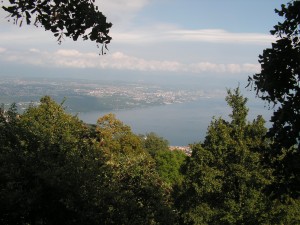
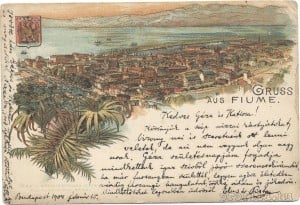
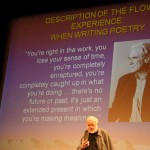
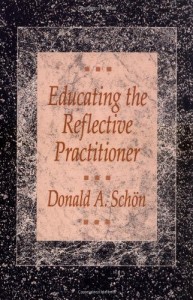

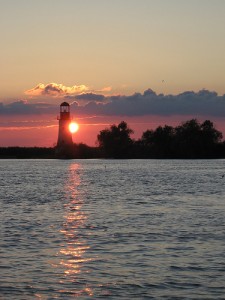
thanks for the post. I’ve always been fascinated by the concept of flow. I tend to experience it at times when I play squash or teach.
Great post, Mark, thanks.
I’ve always wondered whether Csikszentmihalyi has ever visited Csikszentmihaly, which is of course just a few kilometres from me. I feel bizarrely connected to him every time I pass through it, even though there’s no more logic to that than to associating Julie London with London
Really great post about a fascinating theory. You’re lucky to have such a view to look out on, too.
Hi Mark,
I totally agree with what you have mentioned above “A website that promotes flow is like a gourmet meal” this exactly what websites needs to be, it is a very nice post and it made me try to remember the teachers that had influence on me through their teaching and tried to compare what you have mentioned here with what they really had to find why they had such influence on me.
thanks
visit me at sole f80 best price